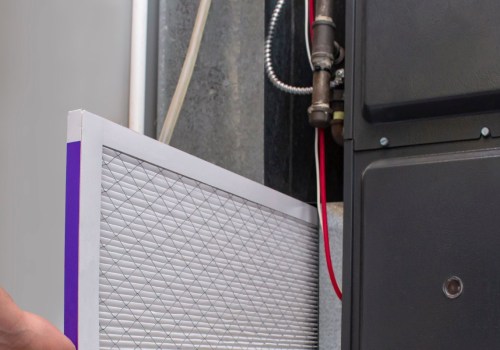As an expert in the field of heating, ventilation, and air conditioning (HVAC), I have witnessed firsthand the advantages of implementing a preventative maintenance plan for these systems. Most HVAC equipment manufacturers require annual maintenance to maintain the warranty, and many contractors offer service contracts that include visits in the spring and fall. These visits not only ensure the system is running efficiently, but also provide discounts on repairs and new equipment. As a facility manager, it is crucial to set goals for costs, resources, and prioritization when considering a preventative maintenance plan for your HVAC system. HVAC systems are essential for maintaining a comfortable and healthy indoor environment.
They regulate temperature, humidity, and air quality, making them crucial for both residential and commercial buildings. However, like any other mechanical system, HVAC systems require regular maintenance to function at their best. This is where preventative maintenance comes into play. Preventative maintenance involves regularly scheduled inspections, cleanings, and tune-ups of HVAC systems to prevent breakdowns and extend their lifespan. It is a proactive approach that aims to identify and address potential issues before they become major problems.
By investing in preventative maintenance, you can save time, money, and headaches in the long run.
The Benefits of Preventative Maintenance
There are numerous benefits to implementing a preventative maintenance plan for your HVAC system. Let's take a closer look at some of the most significant advantages:1.Improved Energy EfficiencyRegular maintenance ensures that your HVAC system is running at its peak efficiency. This means that it uses less energy to heat or cool your building, resulting in lower utility bills. According to the U.S. Department of Energy, proper maintenance can reduce energy consumption by up to 40%.
2.Increased Lifespan of Equipment
Just like any other mechanical system, HVAC equipment has a limited lifespan. However, with regular maintenance, you can extend its lifespan and delay the need for costly replacements. By keeping your system clean and well-maintained, you can avoid premature breakdowns and ensure it operates at its full potential for years to come.3.Improved Indoor Air Quality
Indoor air quality is a significant concern for both residential and commercial buildings.A well-maintained HVAC system can help improve indoor air quality by removing dust, allergens, and other pollutants from the air. This is especially important for individuals with respiratory issues or allergies.
4.Reduced Risk of Breakdowns
Preventative maintenance involves regular inspections and tune-ups, which can help identify and address potential issues before they turn into major problems. This reduces the risk of unexpected breakdowns, which can be costly and disruptive to your daily operations.The Importance of Setting Goals
As a facility manager, it is crucial to set goals when considering a preventative maintenance plan for your HVAC system. This involves evaluating your budget, resources, and priorities to determine the best course of action.Here are some key factors to consider when setting goals for your preventative maintenance plan:1.BudgetOne of the most critical factors to consider is your budget. How much are you willing to invest in preventative maintenance? Keep in mind that while it may seem like an added expense, it can save you money in the long run by reducing energy costs and avoiding costly repairs.
2.Resources
Do you have the necessary resources to implement a preventative maintenance plan? This includes having qualified technicians on staff or hiring a reputable HVAC contractor to perform regular inspections and tune-ups. It is essential to have the right resources in place to ensure your preventative maintenance plan is successful.3.Priorities
What are your priorities when it comes to your HVAC system? Are you more concerned with energy efficiency, indoor air quality, or equipment lifespan? By setting priorities, you can tailor your preventative maintenance plan to address your specific needs and goals.Conclusion
In conclusion, preventative maintenance is crucial for the efficient and reliable operation of HVAC systems. By investing in regular inspections, cleanings, and tune-ups, you can improve energy efficiency, extend the lifespan of your equipment, and ensure a healthy indoor environment.As a facility manager, it is essential to set goals and prioritize when considering a preventative maintenance plan for your HVAC system. With proper maintenance, you can save time, money, and headaches in the long run.






